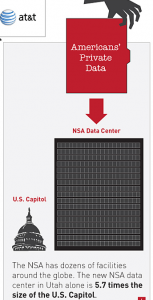Thursday: Move
Need something easy on the nerves today, something mellow, and yet something that won’t let a listener off too lightly. Guess for today that’s John Legend’s Tiny Desk Concert.
I promised reindeer tales today, haven’t forgotten.
From Anthrax to Zombies
- First outbreak in 75 years forces evacuation of reindeer herders (The Siberian Times) — The last outbreak in the Siberian tundra was in 1941; news of this outbreak broke across mainstream media this past week, with some outlets referring to it as a “zombie” infection since it came back from dormancy, likely rising from a long-dead human or animal corpse.
- Infected reindeer corpses to be collected and destroyed (The Barent Observer) — A lot of odd details about anthrax and its history pop up as the outbreak evolves. Like the mortality rate for skin anthrax (24%) and the alleged leak of anthrax from a Soviet bio-warfare lab in 1979. Reindeer deaths were blamed initially on unusually warm weather (~30C); the same unusually warm weather may have encouraged the release of long-dormant anthrax from the tundra.
- Siberian outbreak may have started five weeks earlier (The Siberian Times) — Russia’s Federal Service for Veterinary and Phytosanitary Surveillance senior official is angry about the slow response to the first diagnosis; the affected region does not have strong veterinary service, and it took a herder four days’ walk across the tundra to inform authorities about an infection due to a lack of communications technology. The situation must be serious as the Health Minister Veronika Skvortsova has now been vaccinated against anthrax. Reports as of yesterday indicate 90 people have been hospitalized, 23 of which have been diagnosed with anthrax, and one child died. The form most appear infected with is intestinal; its mortality rate is a little over 50%. Infection is blamed on anthrax-contaminated meat; shipment of meat from the area is now banned. Russian bio-warfare troops have established a clean camp for the evacuated herder families until the reindeer corpses have been disposed of and inoculations distributed across the area’s population.
- Important: keep in mind this Siberian outbreak may be unusual for its location, but not across the globe. In the last quarter there have been small anthrax outbreaks in Indonesia, Kazakhstan, Kenya, Bangladesh, and Bulgaria. Just search under Google News for “anthrax” stories over the last year.
- Coincidentally, anthrax drug maker filed and received FDA’s ‘orphan status’ (GlobeNewsWire) — There have been so few orders for anthrax prophylaxis vaccine BioThrax that specialty biopharmaceutical company Emergent BioSolutions requested ‘orphan status’ from the FDA, granted to special therapies for rare conditions affecting less than 200,000 persons in the U.S. The status was awarded mid-June.
- Investor sues anthrax drug maker for misleading expectations (Washington Business Journal) — Suit filed against the company and executives claims Emergent BioSolutions mislead investors into thinking the company would sell as many doses of BioThrax to the U.S. government during the next five years as the preceding five years. On the face of it, investor appears to expect Emergent BioSolutions to predict both actual vaccine demand in advance along with government funding (hello, GOP-led Congress?) and other new competitors in the same marketspace. Seems a bit much to me, like the investor feels entitled to profits without risk. Maybe they’ll get lucky and climate change will increase likelihood of anthrax infections — cha-ching.
- Another coincidence: Last Friday marked 8 years since anthrax researcher Bruce Ivin’s death (Tulsa World) — And this coming Saturday marks six years since the FBI released its report on the anthrax attacks it blamed on Ivins.
Cybernia
- Facebook let police shut down feed from negotiations resulting in another civilian-death-by-cop (The Mary Sue) –Yeah, we wouldn’t want to let the public see the police use deadly force against an African American mother and her five-year-old child instead of talking and waiting them out of the situation as they do so many white men in armed confrontations. And now police blame Instagram for her death. Since when does using Instagram come with an automatic death warrant?
- Can GPS location signals be spoofed? Yep. (IEEE) — It’s possible the U.S. Navy patrol boats caught in Iran’s waters may have relied on spoofed GPS; we don’t know yet as the “misnavigating” incident is still under investigation. This article does a nice job explaining GPS spoofing, but it leaves us with a mystery. GPS signals are generated in civilian and military formats, the first is unencrypted and the second encrypted. If the “misnavigated” patrol boats captured by Iran in January were sent spoofed GPS location data, does this mean U.S. military encryption was broken? The piece also ask about reliability of GPS given spoofing when it comes to self-driving, self-navigating cars. Oh hell no.
- Security firm F-Secure releases paper on trojan targeting entities involved in South China Sea dispute (F-Secure) — The Remote Access Trojan (RAT) has been called NanHaiShu, which means South China Sea Rat. The RAT, containing a VBA macro that executes an embedded JScript file, was spread via email messages using industry-specific terms. The targets were deliberately selected for spearfishing as the senders knew the users did not lock down Microsoft Office’s default security setting to prevent macro execution. The malware had been in the wild for about two years, but its activity synced with events related to the South China Sea dispute.
Tomorrow’s Friday, which means jazz. Guess I’d better start poking around in my files for something good. Catch you later!

